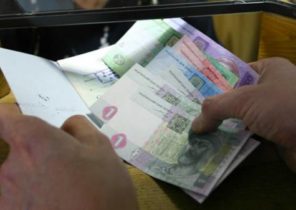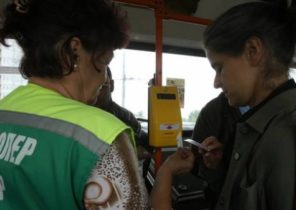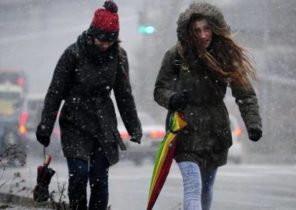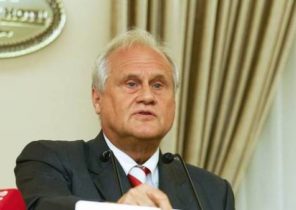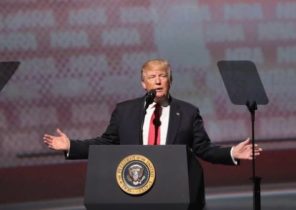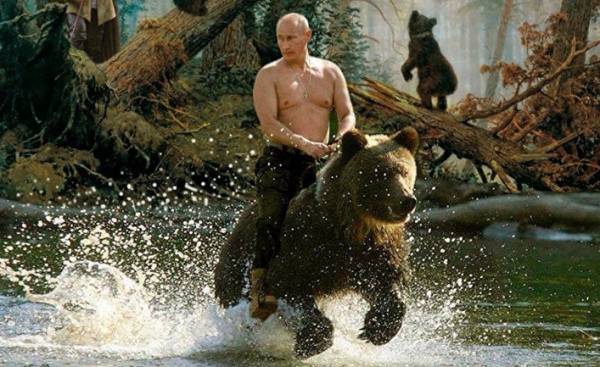
The security experts watching the West’s reaction to Russia’s interference in its internal Affairs — interference by cyber-attacks, mass disinformation, bribing of Western leaders and espionage — there are good reasons for disappointment. With the exception of some Baltic and Scandinavian regions, which have recently joined the Czech Republic, in practice the West has not taken almost no effective response. Despite the fact that the intelligence services of almost all the Western countries to urgently warn about the threats from Russia, few Western leaders have turned to their institutions of security with the requirement to develop and implement an effective strategy to combat the new threat.
We do not live in a perfect world, but let us reflect a bit about the ideal reactions, and about what would be the result.
First, you need to really protect Ukraine from Russian army. The President of the United States and its European allies need in one voice to declare that if the Kremlin did not stop the fighting in Eastern Ukraine, the West will take military action and other steps. For example, detailed information on all financial assets belonging to persons associated with the Kremlin (including the assets of relatives of the Kremlin leaders living in the West) will be on the table in front of Putin becoming a clear message: if you don’t stop aggression, you’ll lose it all.
Moscow has no convincing explanation for large-scale deliveries of military, weapons specialists, intelligence and artillery support, which it provides its henchmen in Ukraine. The West should provide the Ukrainian army with modern weapons to enable it more effectively to defend their homeland. Militias, supported and commanded by a Russian, must be put before a choice: either they surrender and return control over the Ukrainian territory the Ukrainian government, or they are preparing for full-scale offensive on their positions.
The West should explain to Russia that if it will start a large-scale invasion of Eastern Ukraine, it will have to deal with the armed forces of the West. The allied forces will be in a state of full combat readiness, while the Ukrainian army with the support of its Western partners will not return full control over their territories in the East of Ukraine. Moscow will fiercely protest, but, as history shows, when faced with a cohesive and United front, she’ll back off.
Second, Western democracies should seriously treat the problem of mass disinformation. The influence of foreign powers and hostile disinformation in particular — should be seen as one of the most important points of the program relating to the security of the West. Policymakers need to declare that Russia’s behavior is unacceptable and that they will take strong measures to counter. Each victim of the disinformation campaign of Russia should establish special analytical centres, where a minimum of 30 interagency experts in the field of security will be engaged in observation and analysis of the operations directed against their own democracies.
Meanwhile, Western governments should offer a specifically designed policy measures at the national level from specific queries to their own intelligence to strategic communication activities. Without a special team of professionals that will continuously develop public policies to counter this threat, significant progress in this matter will fail. Just as the ordinary police unable to deal with organized crime, the current system of security is not enough to counter the Russian threat.
Third, national leaders have finally explained Federica Mogherini (Federica Mogherini), high representative of the Union for foreign Affairs and security policy, in March 2015, when European leaders urged the European Union to take measures in relation to “the continuing disinformation campaigns of Russia,” they really mean it. If she will continue to avoid recognition of the fact that Russia is the source of hostile disinformation operations, it would mean that it systematically ignores the obvious threat, which is realized already in many member States of the European Union that it represents. Moreover, the only real EU response to this threat at the moment — a team consisting of eleven members, and bearing the name of the EEAS East STRATCOM (the organization is financed mainly by member States, not the institution of the European Union, which with difficulty be reconciled with its existence) — to the point of absurdity is experiencing an acute shortage of personnel. The successes and achievements of the EEAS East STRATCOM should be discussed in the Council of the European Union for foreign Affairs at least quarterly. And when the European Parliament calls for its strengthening, it really needs to be done.
Fourth, it is necessary to identify and challenge “Trojan horses” of Moscow. If an influential politician is distributed simply repeats the lie, as does marine Le Pen (Marine Le Pen) concerning Ukraine, he or she must publicly confront. When some national policy to systematically downplay the importance and extent of Russian interference in the internal Affairs of their own countries, it is necessary to raise the question of the loyalty of these leaders. It is necessary to carefully verify their personal and financial ties with the Kremlin and its proxies. Otherwise, at the head of many democratic States will be leaders, vulnerable to blackmail. That is why all funding for political activities should be completely transparent.
Fifth, governments need to Finance those projects which expose the misinformation and massively increased media literacy. Currently in Europe there is almost no funding for operational monitoring and analysis of misinformation. And if the money appear, these often come from private funds or from several American sponsors. The reason is the extremely low level of understanding of how serious this threat is and how this delicate issue: sponsors are often afraid of angering Moscow, and fear of legal liability.
Command EEAS East STRATCOM already has created a network of 400 researchers-volunteers from 30 countries. These experts weekly report on the facts of misinformation, and almost all of them do it almost for free. Although these volunteers are very determined, no funding serious research should not be expected. To understand how seriously institutions take to this threat, look at the amount of money which is allocated to fight it. In this sense, Europe is very much lost. For a start, any interested government is to provide from 5 to 20 million euros per year, depending on the size of the state.
Sixth, we urgently need information. Many Germans believe the most common version of the Kremlin? What part of French voters believes that it is not necessary to defend the Baltic States and that the President of France should not comply with the requirement of article 5 of the NATO Charter and to send French troops to protect allies? What are the weaknesses of each country is using Russian intelligence to achieve its foreign policy objectives? How to change and changing views of voters on key foreign policy issues, especially in 2014, when the Kremlin launched a big part of their disinformation campaigns aimed at Western audiences?
We need answers to these questions. It is urgent to conduct a comprehensive case study, which will give a clear understanding of how it spreads misinformation in each country and how effective it is. It is impossible to measure a direct impact, but you can find out what part of society believes certain portions of disinformation and why. Not having data on how many inhabitants of Western countries believe the Kremlin propaganda, Western institutions are forced to act almost blindly. The West does not understand what countermeasures need to be developed, since most of the analytical work has not yet started on the scale in which it should be undertaken. Until now this problem did not bother the majority of Western leaders, but it is time to change everything.
Jakub Janda, head of the Kremlin Watch program and Deputy Director of the analytical center “European values” in Prague.


